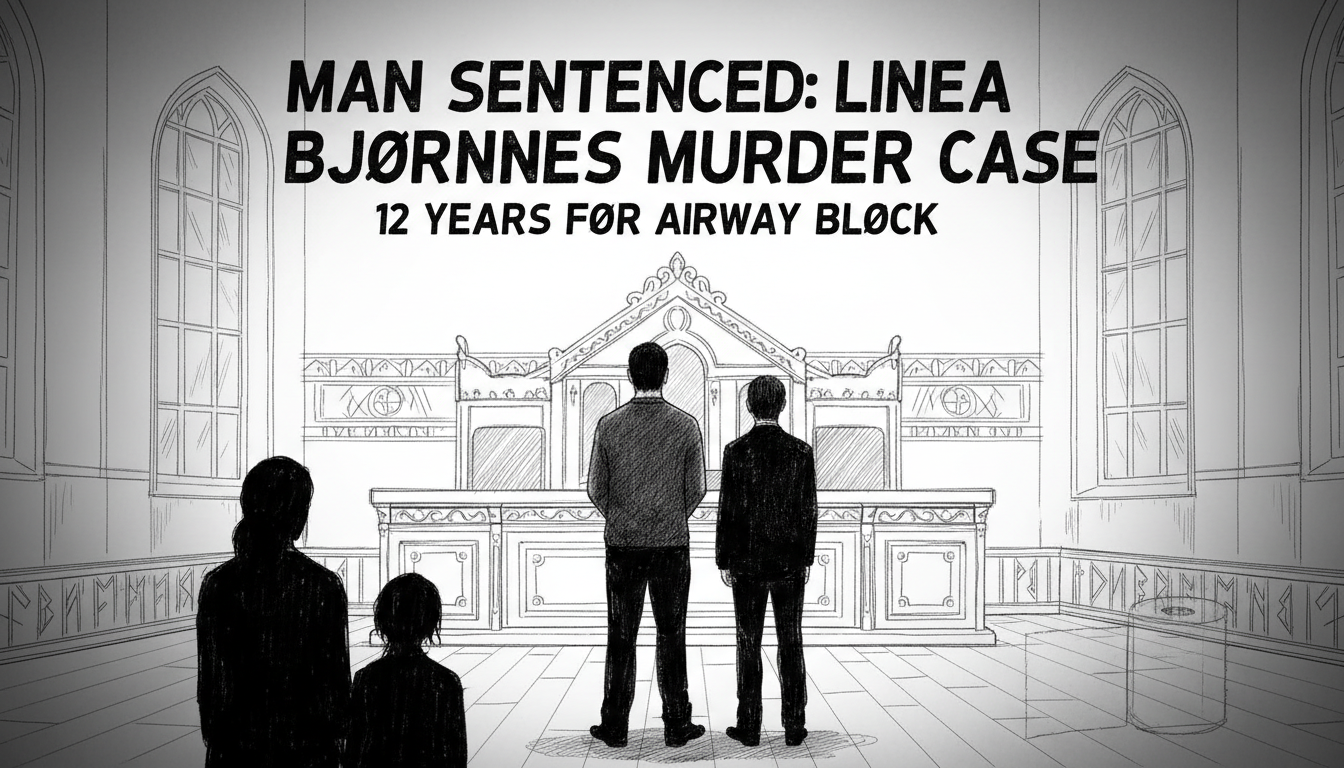A Norwegian court has sentenced a man to 12 years in prison for the murder of 20-year-old Linea Bjørnnes in Stjørdal. The Trøndelag District Court delivered a unanimous verdict after establishing the man caused Bjørnnes's death by stuffing toilet paper into her mouth and covering it with a scarf, leading to fatal oxygen deprivation.
The victim was found lifeless in her home last December and died the following morning at St. Olavs Hospital. During the trial, the convicted man admitted to placing toilet paper in her mouth but denied intending to kill her. He claimed they were recently engaged and expressed deep affection for Bjørnnes.
Norwegian murder sentencing guidelines typically range from 8 to 21 years, making this 12-year term fall within standard parameters for cases without premeditation. The court noted several aggravating factors, including the man's awareness of Bjørnnes's vulnerability due to drug addiction and their relationship dynamic where he supplied her with substances.
This case highlights Norway's approach to domestic violence sentencing and the challenges in prosecuting intimate partner violence. The court acknowledged some mitigating circumstances, including the man's immediate admission of his actions to police and his call to neighbors who contacted emergency services.
Prosecutors expressed satisfaction with the verdict, calling it thorough and well-reasoned. The victim's parents, while accepting the sentence, had hoped for stricter punishment. Their legal representative noted the family wishes to avoid an appeal process and find closure.
The convicted man and his defense attorney are currently reviewing the judgment and considering an appeal. They have until Tuesday to make their decision public. This case follows a pattern of domestic violence incidents in Norway where previous restraining orders and multiple police reports failed to prevent tragedy.
Norway's justice system typically emphasizes rehabilitation alongside punishment, but this sentence reflects the seriousness of taking a life, even without proven intent. The case has drawn attention to how Norwegian courts handle complex relationships involving substance abuse and power dynamics.
Local authorities in Trøndelag county have faced questions about whether existing protection measures adequately safeguard victims of repeated domestic violence. This verdict may influence how similar cases are prosecuted across Nordic countries, where intimate partner violence remains a persistent challenge despite generally progressive social policies.

